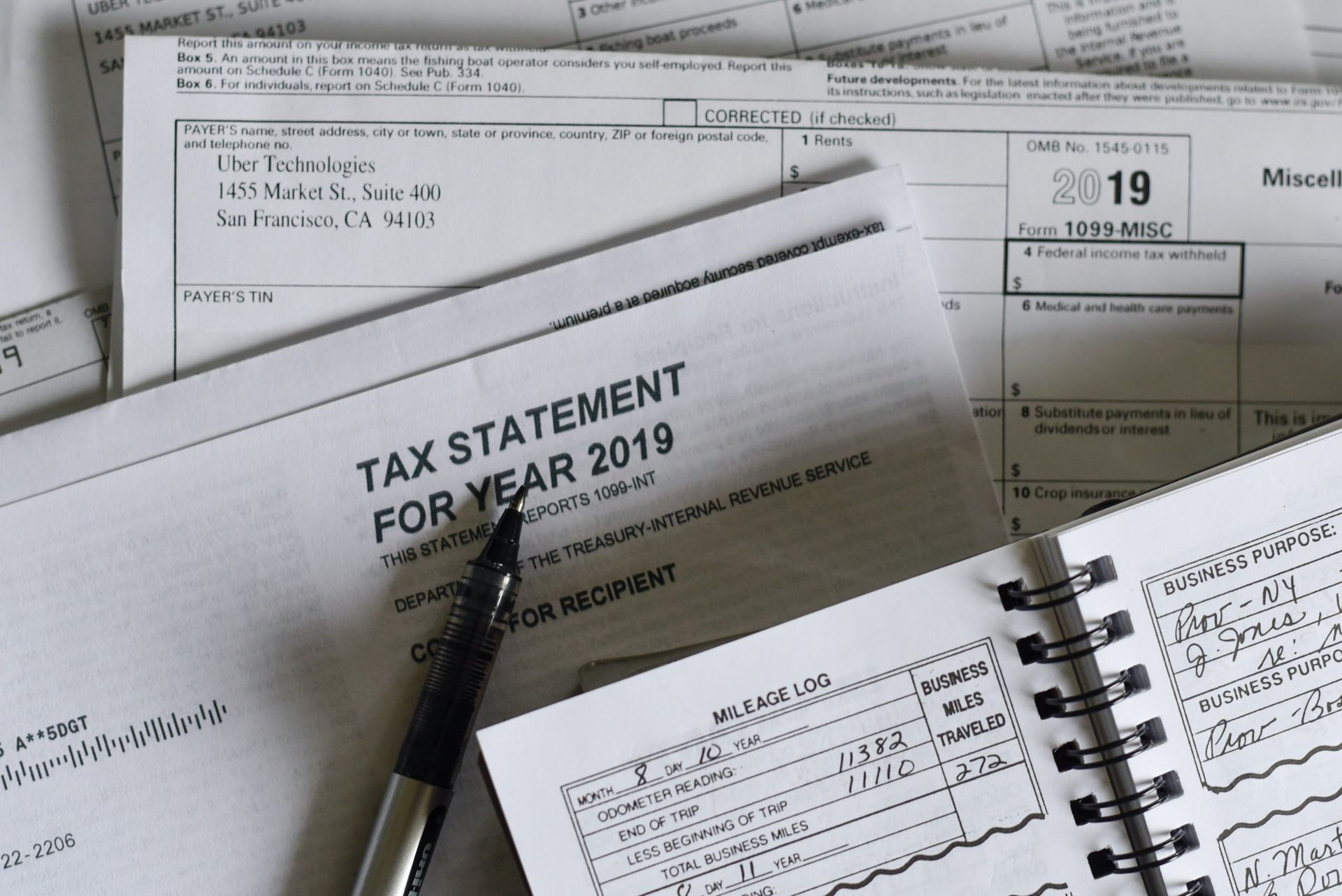BLOG
BLOG

June 14, 2019
Nick Fortune is one of the leading tax strategists in this country, and in this video, he explains what you know need to know about the new Trump Tax Plan. Bottom line, most tax planners do not understand the new tax code changes or have the time to educate themselves in these changes.

May 24, 2019
Welcome to the first episode of the Rich & The Bull Show! Please subscribe now so you don’t miss our next episode! We are excited to announce that FortuneDNA is providing an educational video series available to EVERYONE discussing strategies & plans “to help you THINK LIKE THE RICH and sort out THE BULL – so you can make smart & sound financial decisions.”

May 16, 2019
A spendthrift trust is a trust where the trust property is protected from its beneficiary’s creditors. Generally, the requirements of such a trust is that the trust is irrevocable, the beneficiary has no control over distributions of property from the trust, and in most states, the beneficiary of the trust cannot be the same person as the grantor. These concepts can be combined with dynastic trusts so that it protects a family’s assets (or an individual family member’s assets) from potential losses from law suits, divorce, and estate taxation.

April 5, 2019
There’s a gambling saying that goes something like, “If you want to be a winner, you have to walk away from the table a winner.” One time-honored method of reaching this result is to systematically take your chips off the table as you win them, so that your potential for losses stays small.

March 28, 2019
Unless you’ve been hiking through the Amazon jungle for the past year, you have most certainly heard about the Tax Cuts and Jobs Act (effective January 1, 2018). Furthermore, if you own a small business or own real estate, the topic of the 199A or 20% pass-through deduction has crossed your mind, or at least your email.

March 6, 2019
If you think probate costs are insignificant… think again. For example, Elvis Presley left a $10.2 million estate. But probate costs were $7.2 million, leaving only 28 percent of his estate for his heirs. A worse example is Marilyn Monroe who left an estate worth more than $1 million that took 18 years to probate, leaving just $101,000 for her heirs after the lawyers and others took their fees.

March 5, 2019
Given still-low yields and the ebbing away of pensions, retirement planning today is much more challenging than it was even 20 years ago. Christine Benz discussed the keys to crafting a retirement portfolio that’s well-balanced, tax-efficient, and low-maintenance at this past year’s money show. Listen to her share some model portfolios populated with Morningstar’s high-conviction mutual fund and exchange-traded fund picks in this recorded podcast.

February 26, 2019
Did you know? If a person dies without any effective estate plan, we say the person died “intestate.” Essentially, it is the default estate plan for someone who doesn’t have an estate plan. Each state has its own laws for distribution of an estate of a person who dies intestate. Under laws of intestacy, an intestate decedent’s assets are distributed to family members based on their closeness to the decedent by blood relation.

February 22, 2019
An investment-grade insurance contract is an insurance contract that allows you to not only invest your money without having to pay taxes on its growth, but can withdraw it when you need it, also without having to pay taxes on the withdrawal. That means you can put your money away, make interest, earn interest on your interest, and not share any of it with the government as it grows.

January 14, 2019
After an expansion that lasted nearly a decade, the expansion that began in 2009 looks like it’s finally hitting the wall. The stock market has run out of gas, interest rates are up, the bond curve has inverted, trade policy is anybody’s guess, the left is ascendant politically, and the public and private debt is rising faster than it ever has.

January 9, 2019
Parents’ estate planning concerns change greatly once their children become adults. To a large extent, parents have survived their children’s challenging adolescent years and begun watching them live their own lives. Parents may want to help their adult children start new businesses or help provide for grandchildren.

November 21, 2018
The more things change the more they stay the same. This is especially true when it comes to reviewing your tax situation. Mark your calendar to review these essential items each year to ensure you are not missing something that could cause tax trouble when you file your tax return.

June 26, 2024
What is Probate, and Why is it Important? The question above is commonly asked, and yet to answer it we must first break the question down into parts. As such, the first question to ask is, what is probate? According to the American Bar Association , it is “the formal legal process that gives recognition to a will and appoints the executor or personal representative who will administer the estate and distribute assets to the intended beneficiaries.” From there, things can diverge from state to state. During probate in Florida , the decedent’s assets generally pay for the proceeding’s cost, the decedent’s funeral expenses, and any outstanding debts, with the remainder distributed amongst the various beneficiaries. Furthermore, the proceeding only applies to probate assets, which are those that are owned solely by the decedent at death, or by the decedent and one or more co-owners without a provision for automatic succession of ownership at death. So, for example, a life insurance policy payable to the decedent’s estate is a probate asset, whereas a life insurance policy payable to a beneficiary is not. Where things become more interesting is when considering what is deemed a probate asset. Firstly, if there is a valid will, it will be admitted so the court can transfer the assets listed therein to the named beneficiaries. If there is no will, a probate procedure might be necessary to transfer the probate assets to those entitled to them under Florida law. In Nevada , the procedure for when a will is lacking or invalid is called Administration. Moreover, in Nevada, if the value of assets exceeds $20,000 or real estate is involved, then probate will be necessary to distribute the assets. There are various exceptions to these guidelines, depending on the circumstances of each case. These exceptions are not available to pay debts, and it is the attorney’s responsibility to identify these assets to the court. Of course, some elements of probate make it cumbersome, or even undesirable. Creditors can access your assets, and there are no tax benefits. Furthermore, the probate process can be lengthy, particularly if there are complications. The possibility of challenges is also present, which is probably the last thing you would want your loved ones to have to deal with. And on top of everything else, the entire process is public for all to see. Surely, there must be a better way… And there is. Probably the best example is trusts, which are subject to probate only in the sense that the court will see that there is a trust, and set it aside. The trust remains private, and, depending on the type of trust, is shielded from creditors. The assets are passed to the trustee(s), who is/are tasked with distributing the assets to the named beneficiaries. Some trusts even offer tax advantages. Perhaps the most beautiful part of trusts is their flexibility. They can take multiple forms and serve various purposes, and if done correctly can truly set up the decedent’s loved ones in the best possible way. Learn More About Estate Planning Asset protection is the best way to keep your wealth secured for you and future generations. Find out more about estate planning and how The Second Estate can help you secure your family’s future.

June 19, 2024
What is an Investment Grade Insurance Contract? An investment-grade insurance contract, or IGIC, is a type of insurance that allows you to invest your money without paying taxes on its development while simultaneously allowing you to utilize it when you need it without paying taxes on the money you spend. This means you may save your money, earn interest, and earn interest on your interest while just sharing a small portion of it with the government. You can also leave it to your heirs without having to pay taxes on it. So there are no taxes as it grows, no taxes when it is distributed, and no income taxes when the death benefit is handed on to your heirs.


























